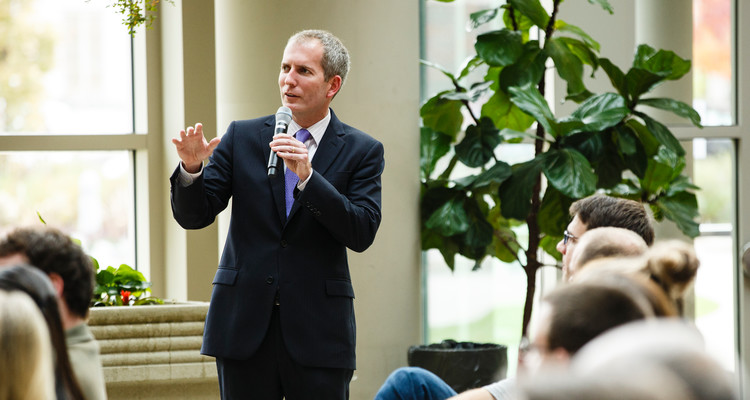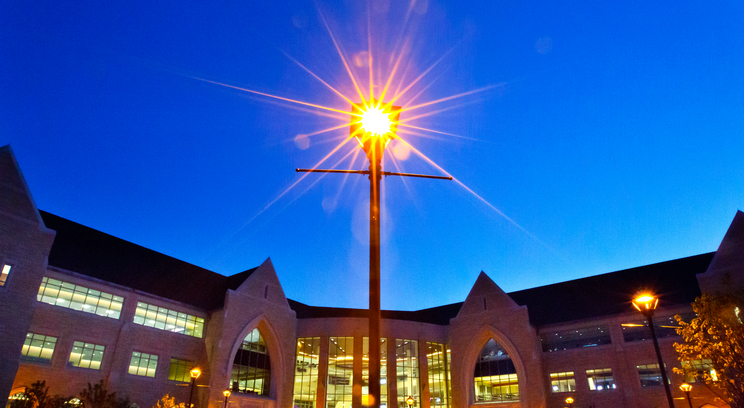At St. Thomas Law, our work to advance the common good starts the moment new students are accepted into our law school community.
Admitted applicants often ask me questions about the courses we offer in a particular area of law. I always expand the conversation to help them understand the importance not just of knowing the names of the courses they can take, but appreciating the type of work they can do as students at St. Thomas. Approaching a St. Thomas legal education as a passive experience – judged primarily by the instruction you receive in a classroom – misses the core of who we are as a law school community. Our faculty includes some of the most gifted classroom teachers in legal education, but that’s not what makes us distinctive. We are a law school built for impact, which means that our students learn by doing.
This issue of St. Thomas Lawyer features examples of how our students do just that.
Professor Mark Osler’s research and advocacy have helped change the national debate on clemency reform, and our students have worked alongside him at every step. For those interested in criminal justice careers, Professor Osler prepares them to do more than function effectively in the system as it exists; he helps them envision the system as it could be and work toward its realization.
Professor Teresa Collett’s course on international human rights utilizes the Catholic Church’s social teaching to provide students with an important normative perspective on current doctrine. Human rights theory matters on the frontlines of diplomacy and global politics, so theory must be experienced in action to be understood fully. As such, Professor Collett takes the students to New York where they work for one week on behalf of the Holy See’s Mission to the United Nations. Students praise the experience as an unforgettable example of how ideas matter in the world.
For the fourth year in a row, St. Thomas Law students argued before the 9th Circuit Court of Appeals under the supervision of Professor Greg Sisk. This spring, the Class of 2016’s Caitlin Drogemuller and Catherine Underwood argued and won a prisoner’s rights case before a demanding three-judge panel in San Francisco. As Caitlin and Catherine move from the St. Thomas appellate clinic to the litigation team at Dorsey & Whitney, this issue provides a window into their St. Thomas experiences.
Every summer, the law school’s donors help fund public interest fellowships that give our students hands-on experience working to provide access to justice. In this issue, you can read profiles of the 2016 St. Thomas public interest fellows.
As advancing the common good does not begin with graduation, it certainly does not end there, either. You can read about the work of our alumni, including Bryan Huffman’s contributions to the St. Paul Public Schools and Beth Forsythe’s reflection on the challenges and opportunities faced by women in the profession.
I believe that our “learning by doing” mantra can do more than inspire a passion for service and instill a deeper understanding of how the law works; it can also, put simply, help our students get jobs.It should not be a surprise that we have the best placement rate of any Minnesota law school and are among the top performers in the region when it comes to employment. Getting our students out of the classroom and into the world enhances their career prospects and strengthens our law school’s contributions to the common good. At St. Thomas, our students are not just why we do what we do; they’re how we do what we do.
Read more from St. Thomas Lawyer.





